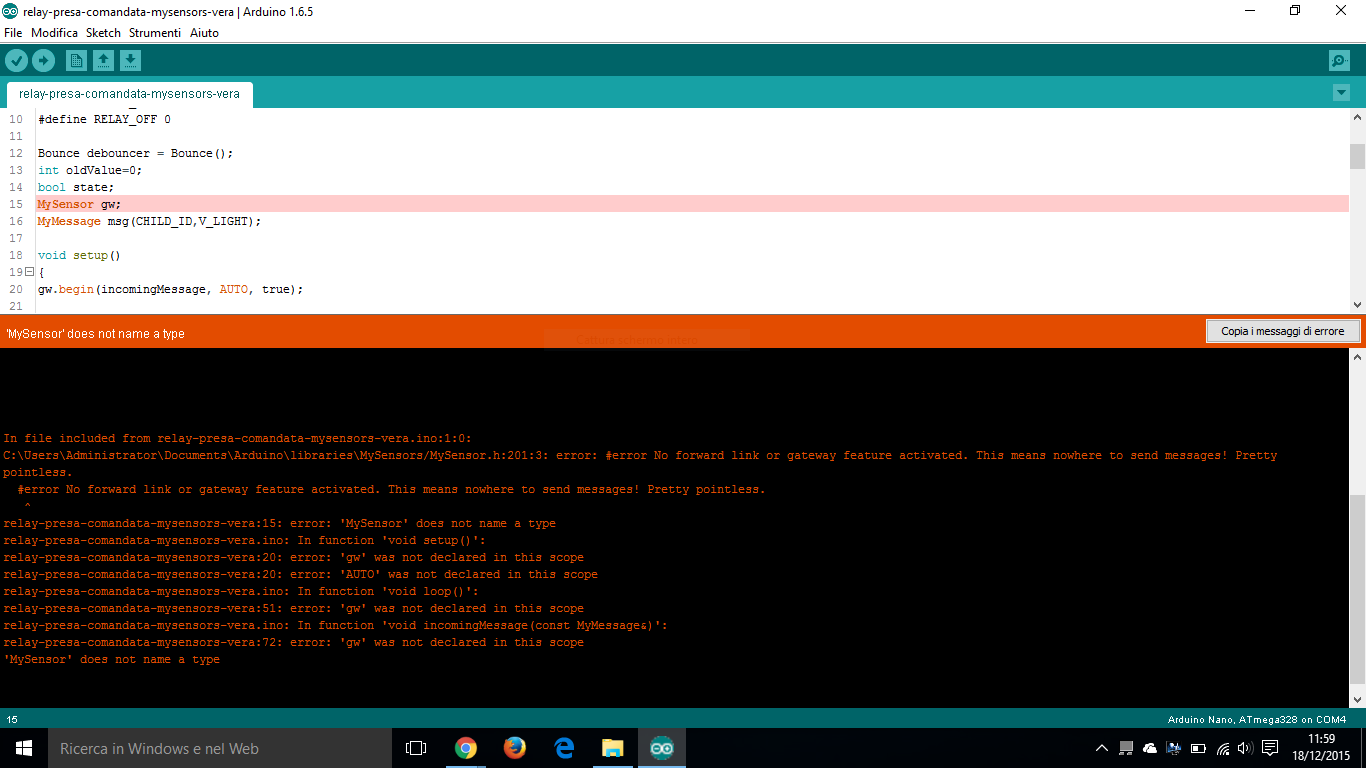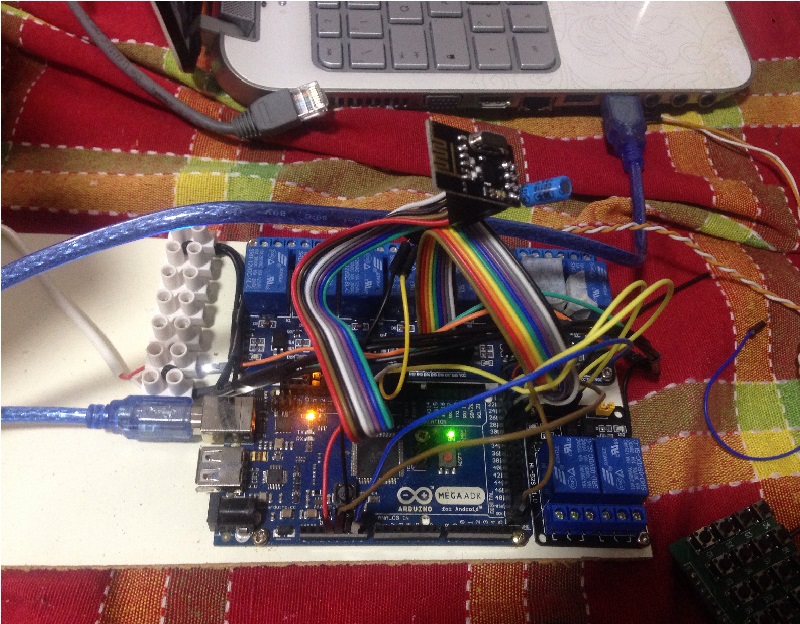My Relay Module
-
Very nice write up! Next add some current sensing ability to see what your load is pulling. :) Although if used for lighting, mostly negligible I suppose haha.
-
Very nice write up! Next add some current sensing ability to see what your load is pulling. :) Although if used for lighting, mostly negligible I suppose haha.
@NotYetRated said:
Very nice write up! Next add some current sensing ability to see what your load is pulling. :)
A non invasive sensor would be ideal. I alredy use energimonitor for solar panels!!!!!
-
Bello GiGi! Nice GiGi.
If you want pm me as I understand we are from the same country.
May be we can exchange some experience in italian ;-)
Will copy your design -
Bello GiGi! Nice GiGi.
If you want pm me as I understand we are from the same country.
May be we can exchange some experience in italian ;-)
Will copy your design -
Hello everyone , I have a problem . maybe it's stupid , I have a server with raspberry domoticz , I downloaded code, but by the following error

-
I downloaded this , https://github.com/mysensors/Arduino . I Submitted libraries entirely within the zip file in my briefcase Arduino library.
however it from the library is the 1.5 readme. Where am I wrong ?
il codice è il seguente#include <MySensor.h> #include <SPI.h> #include <Bounce2.h> #define RELAY_PIN 4 // Arduino Digital I/O pin number for relay #define BUTTON_PIN 3 // Arduino Digital I/O pin number for button #define CHILD_ID 1 // Id of the sensor child #define RELAY_ON 1 #define RELAY_OFF 0 Bounce debouncer = Bounce(); int oldValue=0; bool state; MySensor gw; MyMessage msg(CHILD_ID,V_LIGHT); void setup() { gw.begin(incomingMessage, AUTO, true); // Send the sketch version information to the gateway and Controller gw.sendSketchInfo("Relay & Button", "1.0"); // Setup the button pinMode(BUTTON_PIN,INPUT); // Activate internal pull-up digitalWrite(BUTTON_PIN,HIGH); // After setting up the button, setup debouncer debouncer.attach(BUTTON_PIN); debouncer.interval(5); // Register all sensors to gw (they will be created as child devices) gw.present(CHILD_ID, S_LIGHT); // Make sure relays are off when starting up digitalWrite(RELAY_PIN, RELAY_OFF); // Then set relay pins in output mode pinMode(RELAY_PIN, OUTPUT); // Set relay to last known state (using eeprom storage) state = gw.loadState(CHILD_ID); digitalWrite(RELAY_PIN, state?RELAY_ON:RELAY_OFF); } /* * Example on how to asynchronously check for new messages from gw */ void loop() { gw.process(); debouncer.update(); // Get the update value int value = debouncer.read(); if (value != oldValue && value==0) { gw.send(msg.set(state?false:true), true); // Send new state and request ack back } oldValue = value; } void incomingMessage(const MyMessage &message) { // We only expect one type of message from controller. But we better check anyway. if (message.isAck()) { Serial.println("This is an ack from gateway"); } if (message.type == V_LIGHT) { // Change relay state state = message.getBool(); digitalWrite(RELAY_PIN, state?RELAY_ON:RELAY_OFF); // Store state in eeprom gw.saveState(CHILD_ID, state); // Write some debug info Serial.print("Incoming change for sensor:"); Serial.print(message.sensor); Serial.print(", New status: "); Serial.println(message.getBool()); } }``` -
thank you! I apologize for my level , I hope to fix with your help.
-
Here is the improved code that I used on my Arduino Mega to create a home automation controller
New optimized code to arduino mega
-
Update: Forget it, the code works with Arduino Mini and 2 relay. I tried one after the code of Arduino Mega and not working. Something wrong but I do not know what I require help

I found mistakes on Arduino Mega solvable at the following link
http://forum.mysensors.org/topic/2161/the-mysensor-1-5-code-is-not-compiling-for-my-arduino-mega-2560-board/1
but I do not have this kind of problem you can get support? I connected NRF24L01 to Arduino Mega, as if it were an Arduino Nano, right? -
I connected the radio module as follows
AtMega 2650 Arduino Step Down Module/Radio
GND > GND
5V > Step Down module VCC
14 > SCK
15 > MOSI
16 > MISO
17 > CE
18 > CSN
I tried but it did not work I tried to connect also IrQ
2 > IRQ
it did not work. I tried to connect to 3v3 with the capacitor. it did not work. I tried adding the line in the code
#include <MyTransportNRF24.h>
#include <MyHwATMega328.h>
but to no avail. I am groping in the dark -
I have "check wires" error on the serial arduino....
where do I fit in debug mode there is a guide?
I saw a video that uses MQTT program on mac.
I have downloaded windows MYSController I can be of help? How do I connect my PC? It is all new and are a little confused. :dizzy_face: :u7a7a:I "atmega adk" is a problem?
https://www.arduino.cc/en/uploads/Main/ArduinoADK_R3_Front_450px.jpg -
